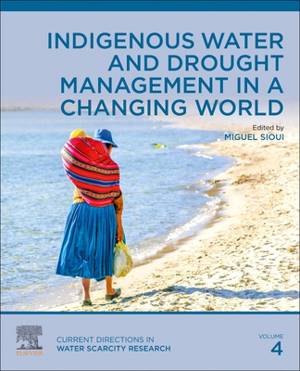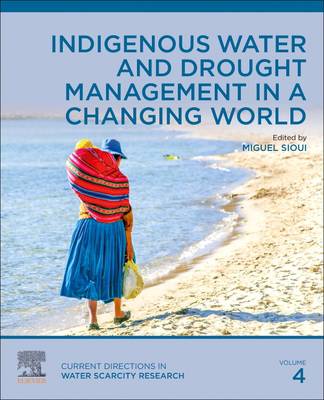
- Afhalen na 1 uur in een winkel met voorraad
- Gratis thuislevering in België vanaf € 30
- Ruim aanbod met 7 miljoen producten
- Afhalen na 1 uur in een winkel met voorraad
- Gratis thuislevering in België vanaf € 30
- Ruim aanbod met 7 miljoen producten
Indigenous Water and Drought Management in a Changing World
Volume 4
Omschrijving
Indigenous Water and Drought Management in a Changing World presents a series of global case studies that examine how different Indigenous groups are dealing with various water management challenges and finding creative and culturally specific ways of developing solutions to these challenges. With contributions from Indigenous and non-Indigenous academics, scientists, and water management experts, this volume provides an overview of key water management challenges specific to Indigenous peoples, proposes possible policy solutions both at the international and national levels, and outlines culturally relevant tools for assessing vulnerability and building capacity.
In recent decades, global climate change (particularly drought) has brought about additional water management challenges, especially in drought-prone regions where increasing average temperatures and diminishing precipitation are leading to water crises. Because their livelihoods are often dependent on the land and water, Indigenous groups native to those regions have direct insights into the localized impacts of global environmental change, and are increasingly developing their own adaptation and mitigation strategies and solutions based on local Indigenous knowledge (IK). Many Indigenous groups around the globe are also faced with mounting pressure from extractive industries like mining and forestry, which further threaten their water resources. The various cases presented in Indigenous Water and Drought Management in a Changing World provide much-needed insights into the particular issues faced by Indigenous peoples in preserving their water resources, as well as actionable information that can inform future scientific research and policymaking aimed at developing more integrated, region-specific, and culturally relevant solutions to these critical challenges.
Specificaties
Betrokkenen
- Uitgeverij:
Inhoud
- Aantal bladzijden:
- 356
- Taal:
- Engels
- Reeks:
- Reeksnummer:
- nr. 4
Eigenschappen
- Productcode (EAN):
- 9780128245385
- Verschijningsdatum:
- 27/05/2022
- Uitvoering:
- Paperback
- Formaat:
- Trade paperback (VS)
- Afmetingen:
- 190 mm x 235 mm
- Gewicht:
- 603 g

Alleen bij Standaard Boekhandel
Beoordelingen
We publiceren alleen reviews die voldoen aan de voorwaarden voor reviews. Bekijk onze voorwaarden voor reviews.










